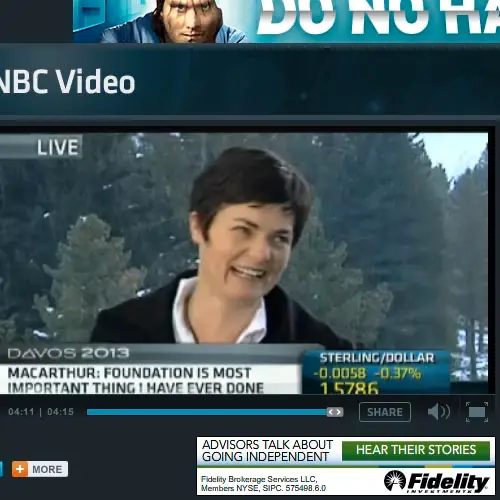PDF rapport 2 Ellen MacArthur over Circulaire Economie
Door het volledig recyclen van snelle consumentenproducten als textiel kan een markt van 700 miljard dollar per jaar ontstaan. Dat staat in het tweede rapport van de Ellen MacArthur Foundation, gepresenteerd in Davos. P+ biedt de PDF van dit vervolgrapport aan.
Opmerkelijk is dat Ellen MacArthur en McKinsey terug willen naar de glazen verpakking voor drank. Het zou de kosten van bier verminderen met 20 procent per hectoliter.
We geven hier het originele persbericht volledig weer.
Davos, January 25, 2013 – the Ellen MacArthur Foundation launches Towards the Circular Economy Vol.2: opportunities for the consumer goods sector , a new report, featuring analysis by McKinsey & Co, which builds on last year’s report and makes the case for a faster adoption, quantifies the economic benefits of circular business models, and lays out pathways for action.
Following the launch of the Foundation’s first report in Davos in 2012 the circular economy has rapidly gained the attention of business and government and this year is central to the agenda of four of the World Economic Forum’s official sessions.
The report focuses on consumer goods, which globally account for approximately 60 per cent of total consumer spending and 35 per cent of material inputs into the economy. Importantly, the consumer goods sector absorbs more than 90 per cent of our agricultural output – possibly our most embattled resource in the future.
Analysis shows that the adoption of the circular economy could be worth as much as USD 700 billion in consumer goods material savings alone, and also highlights added benefits in terms of land productivity and supply chain stability. The report features specific examples in product categories that represent 80% of the total consumer goods market by value, namely food, beverages, textiles, and packaging and provides a series of concrete examples of businesses that derive competitive advantage from better valorising their material flows. Of the many tangible examples across these sectors, highlights include:
• Household food waste(: collecting household food waste and processing it to generate biogas and return nutrients to agricultural soils represents a huge opportunity, as one tonne of food waste can create electricity worth USD 26, heat worth USD 18, and fertiliser worthUSD 6. *As an example, for the UK alone this could represent an income stream of USD 1.5 billion annually.
• Textiles: USD 71 billion in material savings could be achieved through increasing the amount of clothing that is collected and reused or remade, while also generating additional revenue streams.
• Beverages – packaging: beverage manufacturers could reduce material inputs and the price of packaging by moving to re-usable glass bottles. This would enable a cost reduction of 20 per cent (per hectolitre) of beer.
The Foundation’s work with its existing Founding Partners, B&Q, BT/Cisco, National Grid and Renault has triggered circular economy initiatives that collectively target over USD 1 billion in resource savings and new revenues. The Foundation is set to launch a new global initiative to harness this commercial opportunity. The Circular Economy 100, launching in February, will bring together an alliance of globally renowned businesses and provide a global platform building circular economy capacity across the wider economy.
We have seen tremendous momentum building behind the circular economy in the last year. With this report showing a USD 700 billion opportunity for the consumer goods sector alone and making the economic case clearer, we expect to see more and more businesses exploring this new way of thinking.
Due to the exceptional interest we have received from business leaders, and with the encouragement of our Founding Partners, we are launching the Circular Economy 100, which will bring together major companies and accelerate business innovation.
Chris Dedicoat, President of CISCO EMEA underlined the wide-ranging opportunities available through embracing the circular economy: “The Circular Economy offers a profound transformational opportunity, which represents the interests of both the global community as well as the next generation. Transitioning towards a regenerative model will stimulate economic activity in the areas of product innovation, remanufacturing, and refurbishment, and in turn generate employment.”
Stef Kranendijk, Chairman of Desso and circular economy pioneer, echoed MacArthur’s comments during a World Economic Forum seminar on the circular economy & future growth models: “We at Desso believe the time is right for an alliance of like-minded businesses to join together in the drive towards the circular economy. This is the best basis for sustainable economic growth in the future”
Het rapport ‘Towards the Circular Economy Vol.2: opportunities for the consumer goods sector’ is te downloaden via de link onderaan de linkerkolom.
Website van Ellen MacArthur Foundation

